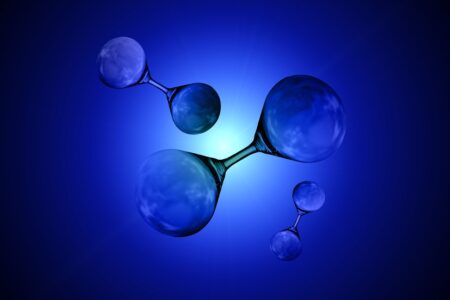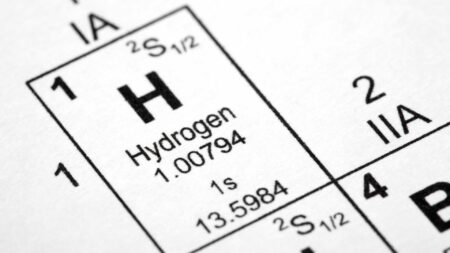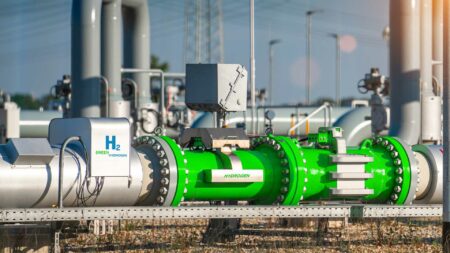A research team at the Helmholtz-Zentrum Berlin (HZB) Centre for Solar Fuels is looking at another route to emissions-free hydrogen production, dubbed the “direct” approach.
The “indirect” method of producing green hydrogen typically involves using solar and wind energy to run electrolyzers. The efficiency of these electrolyzers have reached about 30%.
The group is working to create photoelectrodes that can catalytically divide water into hydrogen, are stable in aqueous conditions, and transform sunlight into electrical energy. The catalyst materials and photoelectrodes combine to form the photoelectrochemical (PEC) cell’s active element.
The best PEC cells available today are composed of inexpensive, comparatively stable metal oxide absorbers, and are capable of efficiency close to 10%. PEC cells have several benefits even though they are substantially less efficient than their indirect green hydrogen equivalents. Reactions can be further accelerated by using the heat from the sun’s direct rays. The researchers added that because the densities are ten to one hundred times lower using this method, more accessible and less expensive materials can be employed as catalysts.
Notwithstanding these encouraging aspects, techno-economic analysis and net energy analysis have showed that the PEC approach is not yet cost-effective when compared to the traditional green hydrogen production approach. Around six times more expensive than “blue” hydrogen produced by fossil methane steam reforming, which costs $1.50 per kg, hydrogen fuel from PEC systems costs roughly $10 per kg. Moreover, it is predicted that the total energy required for PEC water splitting will be four to twenty times higher than the total energy required for electrolysis to produce hydrogen.
Notwithstanding the disparity in cost effectiveness between the two methods, the research team at the HZB Institute is exploring other PEC advantages. The team examined the impact of how the hydrogen created interacts with itaconic acid in a subsequent reaction to produce methyl succinic acid in the same reactor (MSA). Another chemical fuel that can be utilized to transport large quantities of energy, like hydrogen, is MSA.
With the use of PEC technology, MSA can be generated using just one-seventh of the usual energy needed for MSA fuel production methods.
The amount of energy required to create the PEC cell from light absorbers, catalyst materials, and other materials like glass, as well as how long the system must operate to produce this energy in the form of chemical energy as hydrogen or MSA, were estimated to determine this.
When assuming a low 5% solar-to-hydrogen efficiency, the energy payback period for hydrogen alone is around 17 years. The energy payback time is decreased if only 2% of the hydrogen generated is used to transform itatonic acid into MSA. After just two years, the production energy can be recovered if 30% of the hydrogen is turned into MSA.








